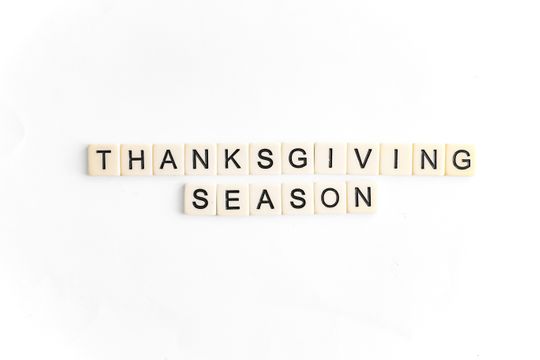Blog
Keep up to date with our news, tips & tools, and latest information!
Deepen Your Connection
Dr Corinne Scholtz, LMFT
This Valentine’s Day, go beyond chocolates and flowers—give each other the gift of understanding, connection, and lasting intimacy.
In this special 90-minute couples session, you and your partner will explore how different “parts” of you show up in your relationship—some that protect, some that seek closeness, and some that carry past wounds. This IFS-informed approach (inspired by No Bad Parts by Dr. Richard Schwartz) offers a new way to understand each other with curiosity and compassion.
💖 How It Works:
✨ Start with a personalized questionnaire to uncover your relationship strengths and growth areas
✨ Engage in a guided Parts Mapping exercise to understand emotional patterns
✨ Learn tools to navigate conflict and intimacy with self-awareness
✨ Leave with a deeper connection and shared language for love
💝 Gift This Experience!
Looking for a meaningful Valentine’s gift? You can purchase this session as a gift to use with your partner at a later date! A thoughtful way to invest in your relationship beyond just one day.
moreSteps to Support Your Nervous System
Dr. Corinne Scholtz, LMFT
Your nervous system is constantly responding to the world around you—sometimes in ways you don’t even realize. If you often feel anxious, overwhelmed, or emotionally shut down, it may be a sign of nervous system dysregulation. The good news? You can begin to shift toward regulation with intentional practices that help your body feel safe, grounded, and present.
Signs of a Dysregulated Nervous System
🔹 Chronic anxiety, panic, or racing thoughts
🔹 Trouble relaxing, feeling restless or on edge
🔹 Emotional numbness, dissociation, or feeling "checked out"
🔹 Difficulty focusing or making decisions
🔹 Digestive issues, tension, or unexplained body aches
Signs of a Regulated Nervous System
✔️ Feeling present and connected in relationships
✔️ Ability to respond rather than react to stress
✔️ A sense of emotional flexibility and resilience
✔️ Healthy sleep, digestion, and overall well-being
✔️ Feeling calm and safe in your body
Steps to Shift Into a Regulated State
1️⃣ Breathe with Awareness – Slow, deep breathing activates the parasympathetic nervous system (your "rest and digest" state). Try box breathing: inhale for 4 seconds, hold for 4, exhale for 4, hold for 4.
morePractical Steps to Foster Connection in Your Relationships
Dr Corinne Scholtz LMFT
Connection is the lifeblood of any healthy relationship. It’s what helps us feel seen, understood, and supported by those we care about most. But fostering connection isn’t always easy, especially when emotions run high or when stress and misunderstandings creep in.
The good news? There are practical steps you can take to create a deeper sense of connection with your partner or loved ones. Below, we’ll explore strategies to strengthen your bond, even in challenging moments.
1. Pause and Breathe
When emotions start to escalate, your body’s stress response kicks in, making it harder to think clearly or communicate effectively. This is your brain’s way of protecting you, but it can also create barriers to connection.
What to do:
Take a few deep breaths to calm your nervous system. Try this simple breathing exercise: inhale deeply for four counts, hold for four counts, and exhale slowly for six counts. Repeat this a few times to help yourself feel grounded and centered.
Why it helps:
Regulating your body’s stress response creates the space you need to approach conversations with clarity and compassion rather than reacting impulsively.
moreAdversity as a Path to Growth
Dr Corinne Scholtz, LMFT
Life often feels like a series of unexpected twists and turns. A relationship falters, our health becomes uncertain, or financial struggles weigh us down. These moments can leave us feeling stuck, questioning our path, and searching for answers.
But here’s the truth: adversity, while painful, is also a powerful opportunity for growth. In therapy—whether with couples or individuals—I’ve witnessed how challenges can serve as the starting point for profound transformation. The key lies in how we choose to respond.
The Power of Choice
Adversity doesn’t define us; our response does. When life feels overwhelming, it’s tempting to avoid, deny, or resist what’s happening. But growth begins when we pause, reflect, and decide to approach challenges with intention.
For individuals navigating life transitions or personal struggles, individual counseling offers a safe space to explore emotions, identify patterns, and find clarity. For couples, challenges such as communication breakdowns or disconnection can become the foundation for rebuilding trust and intimacy.
moreHoliday Meditation
Dr Corinne Scholtz, LMFT
The holiday season brings a whirlwind of emotions, from joy and nostalgia to stress and even loneliness. Amid the hustle and bustle, it’s easy to feel ungrounded or disconnected from yourself and those around you. Taking just a few moments to pause and center can make a world of difference, allowing you to move through the season with greater clarity and calm.
To help you navigate the complexities of the holidays — whether it’s managing complicated relationships, finding balance in solitude, or honoring your own needs — I’ve created a grounding holiday meditation. This simple yet powerful practice is designed to help you reconnect with yourself and approach the season with intention.
Grounding Holiday Meditation Take a moment to pause, breathe, and ground yourself amidst the holiday buzz with this simple meditation:
Settle In: Find a quiet space where you can sit comfortably. Close your eyes and take a deep breath in through your nose, and slowly exhale through your mouth.
Anchor Your Breath: Begin to breathe naturally, letting your awareness rest on the gentle rise and fall of your chest. Imagine each breath creating a little more space within you.
more
Relationship Care
Dr Corinne Scholtz, LMFT
Doing the uncomfortable now—like a colonoscopy or a hard conversation—can save you heartache later. Let's talk about relationship "preventative care." A quick and effective relationship check-up that someone can do right now, today, might look like this:
1. Check-In on Emotional Connection
Ask yourself and your partner:
- "How have we been feeling lately in our relationship?"
- "Are we taking time to listen and understand each other, or are we feeling a bit disconnected?"
If the answer is that things feel a little off, this is a great time to start a conversation about it. You can use "I" statements to express your feelings without blame (e.g., "I’ve been feeling a little distant lately, and I’d love for us to reconnect").
2. Reflect on Communication Patterns
Think about how you communicate with each other.
- "Are we really hearing each other, or are we just waiting for our turn to speak?"
- "How do we respond during disagreements? Do we listen, or do we shut down or get defensive?"
If you notice any patterns where communication could improve, consider taking a moment to practice active listening: one person speaks, while the other listens without interrupting, then mirrors what was heard before responding.
moreNavigating Tricky Family Dynamics
Dr. Corinne Scholtz, LMFT
The holidays can be a joyful time, but they often stir up stress, old wounds, and tricky family dynamics. Use this guide to approach difficult situations with calm, confidence, and compassion—and know that support is always available if you need it.
1. Set Intentions Before the Gathering 🌟
- Reflect on Your Goals: Ask yourself, What do I hope to experience or feel during this holiday? Connection? Peace? Humor? Let this guide your actions.
- Focus on What You Can Control: You can’t change how others act, but you can control your responses.
2. Prepare Yourself Emotionally 🧘
- Ground Yourself Before Arriving: Take a few deep breaths, meditate, or go for a walk to center yourself.
- Visualize Positive Outcomes: Imagine walking into the gathering feeling calm, confident, and open.
- Bring a Tool for Re-centering: If tensions rise, excuse yourself to the restroom or step outside for a moment to reset with deep breaths or grounding exercises.
3. Stay Curious, Not Defensive 🗝️
moreSelf-Compassion
Dr. Corinne Scholtz, LMFT
Self-compassion is one of the most powerful tools for inner peace, but it's also one of the most challenging to cultivate, especially when our inner critic is loud. If you’ve ever felt weighed down by self-judgment or worry, this simple “Release and Reclaim” practice may help. It’s a tool I frequently use and share with clients, designed to create space for kindness toward ourselves and release what no longer serves us. Whether you’re preparing for a potentially stressful family gathering, reflecting on personal growth, or simply looking for a moment of peace, this practice offers a gentle path toward self-compassion.
Step 1: Find a Quiet Space
Start by finding a quiet, comfortable spot where you can be alone with your thoughts for a few moments. Take a few deep breaths, allowing your body and mind to relax. Breathe slowly and intentionally, letting any tension start to soften as you settle into the present.
Step 2: Identify a Self-Judgment
Next, bring to mind a specific self-critical thought or worry. It could be something about an upcoming family gathering, a lingering regret, or a challenge you’re facing. Notice where this self-judgment shows up in your body—is there a feeling of heaviness, tightness, or unease? Acknowledge this feeling without judgment, simply observing it with kindness. By tuning into the body’s response, you’re bringing compassion to the moment, honoring the fact that these thoughts are human and don’t define you.
moreGrief During The Holidays
Dr. Corinne Scholtz, LMFT
As the holiday season approaches, many of us feel both the warmth of celebration and the weight of loss, especially when we are grieving. For couples, navigating the holiday season while dealing with grief can be complex. There’s the desire to honor memories and also an opportunity to create meaningful experiences with the people we love today. Finding a balance between the two can be challenging, yet shared practices can help bring calm, connection, and healing. One of these practices is grounding breathwork, which can gently support both individual and shared healing during this time.
Breathwork is a simple yet powerful tool. Whether you’re moving through recent loss or holding space for long-standing grief, this practice can support you in finding grounding and presence.
A Grounding Breath Practice to Support Healing and Connection
This grounding breath practice can serve as a small moment of peace—a way to reset, reflect, and connect as you move through the season. Take a few quiet minutes to sit and explore this gentle practice.
Start by Centering
moreMicro-Growth!
Dr. Corinne Scholtz, LMFT
Welcome to the Micro-Growth Journey!
This practice is about noticing and celebrating the small moments, actions, and shifts that contribute to lasting growth. Even the tiniest steps forward are valuable and deserve recognition. Over time, these micro-moments of growth build up, creating a powerful foundation for positive change.
How to Begin
Set aside a few quiet minutes each day—morning or evening, whatever feels right for you. With each journal entry, reflect on the prompts below and explore small ways you can gently grow, shift, or experiment in your daily life. The goal is to go slowly and simply notice.
Daily Prompts for Micro-Growth
What small shift in your thinking or behavior did you notice today?
Reflect on a moment where you chose a new response or allowed yourself to see something in a different light
Did you find a moment to show yourself kindness or compassion?
Think about an instance where you softened toward yourself. Maybe you allowed yourself a break, forgave a small mistake, or gently challenged a critical thought.
more









